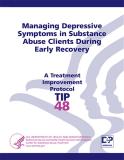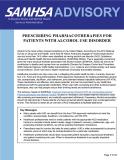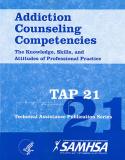
This manual provides guidelines in screening and assessing teens for substance use conditions. It covers confidentiality laws, and screening and assessment in juvenile justice settings. The manual also includes screening and assessment tools.
Units per Product
Download
TIP 31: Screening and Assessing Adolescents for Substance Use Disorders
File Type: PDF
File Size: 1.95 MB







